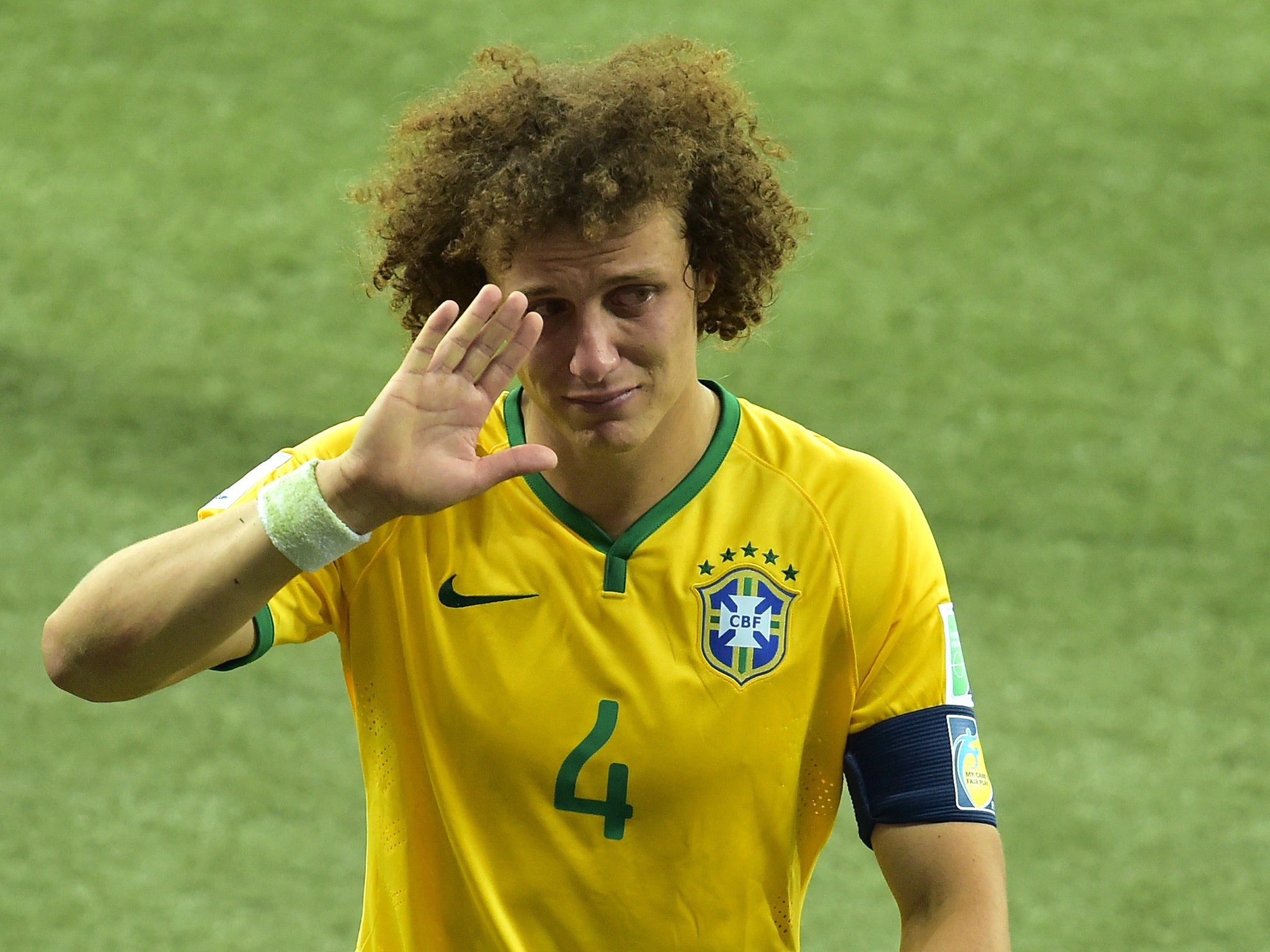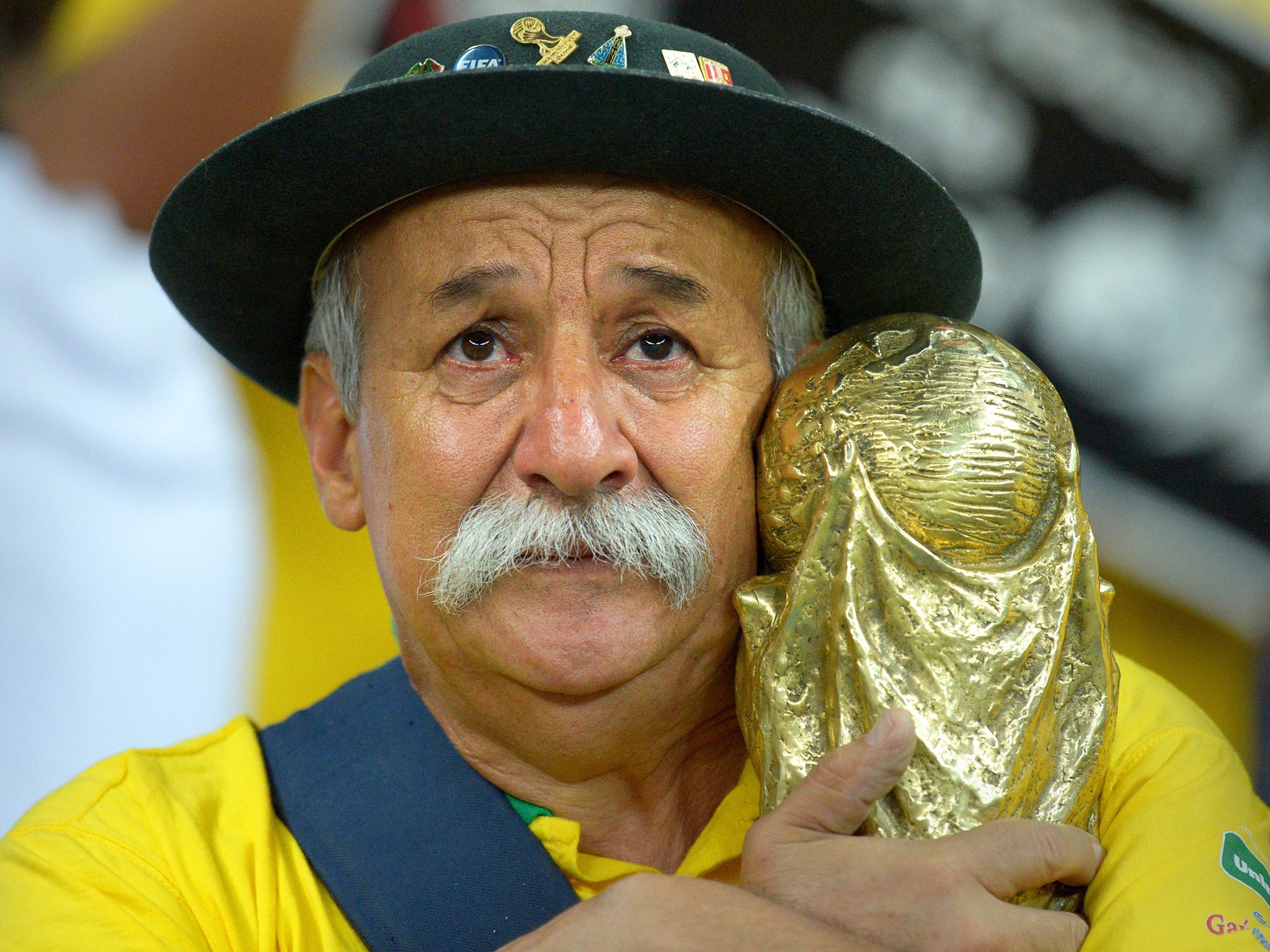Brazil vs Netherlands World Cup 2014: Arrogant Brazilian team may never be forgiven by the fans
The ghosts of 1950 have been exercised... but replaced by this current team

They started out with the hope of exorcising the ghosts of the Maracanazo but in the end they never even got to set foot on the stadium’s soil.
But as Brazil hobble towards a pointless third-and-fourth-place game in their capital tonight, it’s not even the barbed memories of Tuesday’s 7-1 semi-final pummelling by Germany that scraped and carved at the national consciousness that are hurting most. Instead, there’s a countrywide feeling that people have been abandoned and humiliated by their team’s remarkable antics.
Anecdotal but representative of the mood of the place, a taxi driver says he hopes Brazil are “destroyed by the Netherlands because they are disgusting”. And he isn’t talking about their style of play or the end result of their darkest night. Their cynicism was excusable by their limitations and their physical play was excusable by their need to survive and advance.
On Wednesday morning here, the reaction was as ferocious as it was predictable. The locals walked like zombies past the news-stands and the front-page headlines hit you almost as hard as the barrage of German goals in the first half.
“Congratulations to the runners-up of 1950,” a reference to the Maracanazo, when Brazil lost to arch-rivals Uruguay in the World Cup final at the Maracana. “Yesterday we found out what shame really is.”
“There will be no cover. While you read that, Germany just scored again.”
“Go to hell, Felipão.”
“Shame. Disgrace. Humiliation... This team made history.”
But while the media have combed over the team’s technical and tactical faults, as if there is any point, it has been the infantile attitude and grotesque behaviour of the squad that are far more troubling for most people.
When considering the fallout from all this, you need to realise the place the Selecao hold in the hearts and minds of Brazil and how a unique bond has been destroyed. It can often be too easy to lump a stereotype on the locals when it comes to football but where else do grown men comb the streets long into the night, setting off fireworks to mark a result, and where else would the major national newspaper run a piece about the effect the German game would have on the children of the nation?
But for those beyond the elite classes in an impoverished country, their football team is how they try and project themselves positively on to the world. Unlike any other place, until this week there was a vital link between super-wealthy players and the lower classes that adored and cherished them.

When the side have arrived in each and every city, the favelas have spilt out on to the motorways in the hope of catching a glimpse of the players, even though these are the same people that have been priced out of games. Many less well-off Brazilians are embarrassed by their circumstance, surroundings and corrupt politicians, but never by their football team. That is until now and that is from where the pain emanates.
If the side were torn apart by the self-made emotion that they used to try to hold themselves together throughout the tournament, then it was synonymous with how the side also tried to elevate themselves above those they claim to represent.
For instance, in the build-up to the semi-final, there wasn’t a single mention of the names of Charlys Frederico Nascimento and Hanna Cristina Santos. Both were 25 years of age and were crushed to death when a bridge collapsed on to a bus near Belo Horizonte’s Mineirão less than a week before the stadium hosted the Germany match. But to say it is a tragedy already forgotten would be to assume, wrongly, that it was acknowledged in the first place.
Instead, against the backdrop of a fatal accident many believe was because of construction projects being rushed so they were finished for the tournament, Luiz Felipe Scolari and Thiago Silva talked at press conferences about the soul of Neymar being with them and how any performance and result would be in his memory.
It was part of a process whereby they tried to raise themselves to the status of gods but in reality they only alienated themselves. Indeed, in defeat and in tears, David Luiz said after their elimination that he was sorry he couldn’t make his people happy. It was the sort of quote that wouldn’t have seemed out of place coming from Jesus and it was another example of the pompous, arrogant nature of the team that existed in a bubble and left you feeling sorry for ordinary Brazilian people.
Where before they were made to pay an extraordinary physical price by their government to bring the World Cup here, now they’ve had to pay an extraordinary mental price because of how their team acted in front of the eyes of the globe.
In the aftermath of the 7-1 loss, small pockets of violence pockmarked the landscape. Tear gas was fired in Belo Horizonte, bars were trashed across the north-east, riot police were called to break up scuffles in Sao Paulo’s bohemian Vila Madalena while, elsewhere in the city, buses were set alight. But as time has passed there is simply a sense of disillusionment and disbelief at what has happened. Now that it’s nearly over, this ghost will haunt the nation for far longer than even the Maracanazo and may never be exorcised.
Join our commenting forum
Join thought-provoking conversations, follow other Independent readers and see their replies
Comments
Bookmark popover
Removed from bookmarks